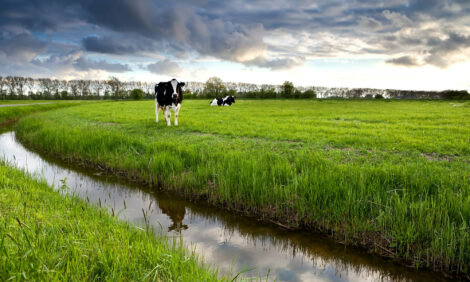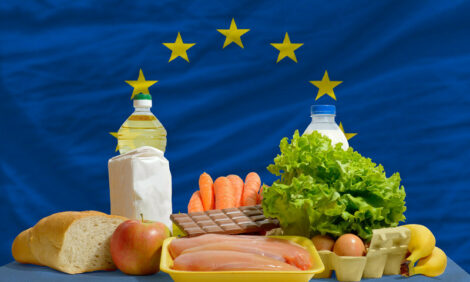



EBBE: A Voice For European Dairy Cattle
EUROPE - Major stakeholders within the European dairy sector are creating an independent body of experts to consider modern dairy cattle management and nutrition challenges. The group, the European Board of Bovine Experts (EBBE), will be an independent voice for the European dairy cattle sector.This group will offer guidance and advice to all participants based on current scientific knowledge, management practices and nutritional requirements, taking into account animal health and welfare as well as maintaining productivity.
The new European Board of Bovine Experts (EBBE) will eventually include up to 10 top specialists covering the main fields of expertise in dairy cattle management. The group will meet about twice per year and a chairman is to be elected annually by the board members.
Each EBBE meeting will have a special theme with members invited so that individual fields of expertise match subjects to be discussed. Key themes will include general herd health and welfare along with nutrition for optimum productivity and sustainability.
Created as a strictly independent advisory body by a number of leading companies and institutes in Europe, EBBE has already held its first meeting in Copenhagen where fertility in dairy cows was one of the topics discussed.
Present were nine specialist board members with expertise in cattle genetics (Dr John Cook from UK), in veterinary reproduction (Prof Dr Jo Leroy from the University of Atwerp, Belgium), in feed processing (Dr Mary Beth de Ordanza, USA), in veterinary science & cattle nutrition (Dr Carsten Zech, Germany), a dairy farm management consultant (Dr Paola Amodeo from Italy and Dr James Husband from UK), Professors from the Universities of Barcelona Copenhagen, and Postdam (Prof Dr Casamiglia and Prof Dr Enevoldsen, and Prof Dr Schweigert respectively) .
The first EBBE chairman is Dr Irmgard Immig, Global Category Manager Ruminants DSM. Dr Immig said that more detailed subjects for meetings would include reproduction, health of udders and hooves, calf health and survival and environmental impact management.
“We want to arrive at realistic recommendations applying to all relevant subjects and problems faced day-by-day in dairy cattle feeding and production,” she commented.
Dr Immig added that EBBE recommendations would ideally serve as management tools and guidelines for all players in the dairy cattle sector including farmers, veterinarians and nutritionists as well as advisers and consultants.
“Members selected for this board are all at the top of their chosen professions,” said Dr Immig.“So they’re in the best position to develop guidelines based on the very latest scientific knowledge and best management practices.”
The discussions and resultant guidelines from EBBE will be published regularly and the results also updated regularly.
The first EBBE meeting discussed and ranked main dairy cow fertility issues involving management, heat detection, nutrition, egg/ovarian health, metritis and liver function.
Guidelines for good management practice in this context were drafted by the members and the general consensus at the end of the day was: “Rather than concentrating on high milk yields being the cause of poor fertility we need to focus on improved fertility as the key to efficient milk production."



